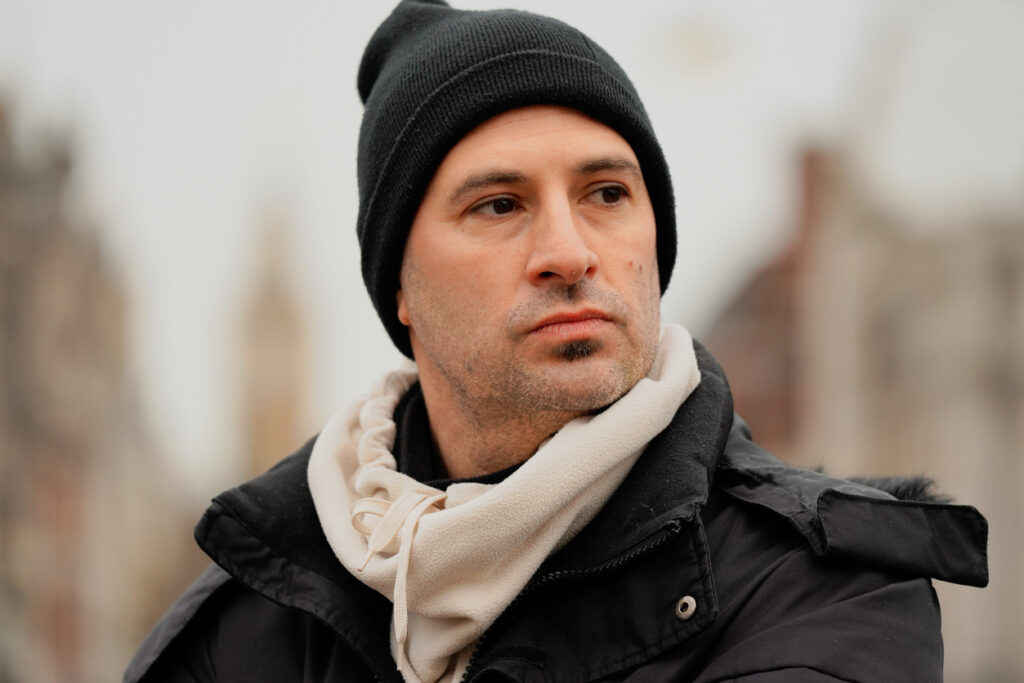So much of what men carry doesn’t look heavy until it’s breaking them from the inside out.

Messages picked up in childhood, culture, and quiet moments pile up, and because no one really talks about them, they stay buried. After a while, that silence turns into pressure, and the pressure turns into burnout, numbness, or breakdown. These are the beliefs men often internalise without realising it… until their mental health, relationships, or sense of self starts to fall apart.
1. That emotions make them weak

From a young age, many boys are taught to hide their feelings — to toughen up, brush it off, be the strong one. That belief doesn’t just disappear with age. It sticks around, turning emotions into something shameful instead of natural. So instead of processing sadness or fear, it gets buried and shows up as anger, withdrawal, or physical tension. The thing is, emotions don’t vanish just because you ignore them — they build until they start leaking out sideways.
2. That their worth is tied to what they produce

A lot of men are raised to believe their value comes from how hard they work or how much they achieve. Productivity becomes identity, and slowing down feels like failure, not rest. That mindset can be incredibly damaging when they’re burned out or struggling. Instead of asking for help, they double down and push harder, often until they physically or mentally crash. It’s not resilience; it’s survival mode on repeat.
3. That asking for help is something to be embarrassed about

Help is often framed as a last resort, something you turn to when you’re “weak” or “can’t handle it.” That idea sinks in deep, especially when it’s rarely modelled by other men. By the time someone realises they can’t carry it alone, the damage is usually well underway. However, asking for help isn’t failure. It’s one of the hardest and strongest things anyone can do, especially after years of pretending not to need it.
4. That they always have to be the one who holds it together

Men often feel responsible for keeping things stable — the relationship, the household, the family. Even if no one says it outright, there’s this unspoken rule that they’re supposed to stay calm, be dependable, never crack. However, always being the strong one means they rarely feel safe falling apart, even in private. When life gets heavy, they don’t know how to collapse safely, so they implode quietly instead.
5. That vulnerability is only allowed in tiny, acceptable doses

They might open up a little — say they’re stressed, mention something offhand, but anything deeper feels risky. Vulnerability, when you’re not used to it, can feel like exposure instead of relief. So they keep it surface-level, even when something inside is screaming to be heard. But bottling it up doesn’t make it disappear. It just ensures it explodes later, often in moments they least expect.
6. That anger is the only “safe” emotion

For many men, anger is the one emotion they’ve been allowed to express openly. It’s familiar, it feels powerful, and it covers up other feelings that feel scarier — like fear, shame, or heartbreak. However, when anger becomes the go-to, everything else gets shut out. It’s a short-term release that leads to long-term damage — in relationships, at work, and in how they see themselves.
7. That success will make everything feel better

There’s this idea that once a man gets the job, the house, the respect — everything will fall into place emotionally. But what happens when they get there and still feel empty? It creates a quiet kind of shame, because they did everything “right” and it still wasn’t enough. That gap between what they expected and what they feel is often where the real identity crisis begins.
8. That being tired is something to ignore

Fatigue gets brushed off — just keep going, just push through. Rest is treated like weakness, not a basic human need. Eventually, the body starts yelling what the mind has been trying to whisper. Ignoring tiredness turns into burnout, mood swings, and a complete loss of motivation. However, because they’ve been taught to keep moving, they don’t stop until something forces them to.
9. That they’re not allowed to admit they’re lonely

Men can be surrounded by people and still feel completely alone. But loneliness isn’t something they’ve ever been encouraged to talk about, especially with other men. So, they internalise it, pretend it’s normal, and slowly, that loneliness turns into detachment, cynicism, or emotional numbness that shows up in every corner of their life.
10. That they have to fix everything, not just be there

Whether it’s their partner, their kids, or their friends — many men believe their role is to fix, solve, provide answers. But most of the time, what people actually need is presence, not perfection. That pressure to solve every problem creates deep frustration and burnout. And when they can’t fix it, they feel like they’ve failed, when really, just showing up and listening would have been enough.
11. That their trauma “wasn’t that bad”

So many men downplay what they’ve been through — abuse, neglect, emotional wounds — because they’ve been told to toughen up or move on. They convince themselves that if they survived it, it doesn’t count as trauma. However, the body remembers what the mind tries to bury. That unprocessed pain doesn’t just disappear; it seeps into their relationships, self-worth, and ability to feel safe in their own skin.
12. That being emotionally distant protects other people

They think keeping it in makes them strong. That if they bottle things up, they won’t burden anyone else. However, what often happens is the opposite — people around them feel shut out and disconnected. That emotional distance might have been learned as a coping tool, but as time goes on, it becomes a wall. Once it’s up, it’s hard to remember how to let anyone in, even when they desperately want to.
13. That their softness is a liability

Kindness, sensitivity, gentleness — these traits often get buried under layers of armour. Not because men don’t have them, but because they’ve been taught that those things make them weak or vulnerable to criticism. So they harden. They play roles. But underneath, that softness still exists, and denying it comes at a cost. Because there’s nothing weak about being a good man with a good heart. That’s the kind of strength the world actually needs more of.
14. That their identity has to stay consistent forever

Change gets framed as flakiness, and growth can feel like betrayal. So men often stay stuck in old versions of themselves long after they’ve outgrown them, afraid of what people will think if they start evolving. Their resistance to change isn’t about pride — it’s about fear. However, staying the same to make other people comfortable always backfires. The more they suppress who they’re becoming, the more they start feeling lost.
15. That silence is strength

Keeping it all in might feel powerful in the moment, but silence turns into isolation fast. The longer they go without expressing what’s real, the heavier it gets — until it all collapses at once. True strength isn’t staying quiet. It’s being brave enough to speak when it matters. The things they’ve been holding in? They don’t make them weak. They make them human.


